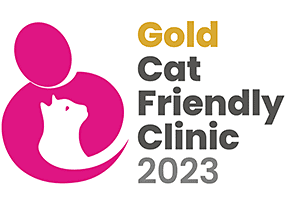Understanding how to care for your rabbit
Rabbits are wonderful, intelligent creatures that if properly cared for can live for 8-10 years or more. They are sometimes considered as “children’s pets”, however rabbits actually have quite complex dietary, housing & social needs so please consider this before you choose to take on a rabbit as a pet.
Whether you are considering rabbits as pets, or you already have new rabbits here is our brief guide to essential rabbit care…
Starting off with your new rabbit
One of the first things to consider is whether your rabbits will live indoors or outdoors. Whichever you choose there will need to be plenty of space for them to exercise and express healthy behaviours like foraging and ‘binkying’. Traditional hutches and small cages are no longer considered acceptable living conditions so please make sure you have adequate room in your house or garden before considering a rabbit as a pet.
Rabbits are also very social creatures and should ideally be kept in pairs or larger groups. Rabbits that get on well together are known as bond partners. A neutered male & neutered female usually make the most successful bond partners, but other combinations can also work. Bonding can take a bit of time and is best done once both rabbits have been neutered. For more advice on how to bond rabbits please speak to your vet or see our First Hops guide. There is also a good guide to bonding rabbits available on the RSPCA website.
Feeding your rabbit
Rabbits are fibrevores, meaning they have evolved to live on a diet mainly consisting of grass and a small amount of other green vegetation. In order to mimic this your rabbits should be fed a diet that consists mostly of grass and/or hay with a portion or two of leafy greens and a small amount of pelleted food daily (1 tbsp daily is enough for most average sized rabbits).
The recommended ratios are:
- 80-90% grass and/or hay
- 10-15% green leafy veg/herbs
- 5% maximum pelleted diet
Rabbits are very selective eaters and will eat their favourite parts of their diet, usually treats, muesli & veggies first before eating their hay/grass. Feeding too much commercial food, muesli or pelleted, or too much veg can lead to obesity, dental disease, urinary problems and other health conditions.
Here are some tips to try to help avoid diet-related problems…
Any new foods should be introduced slowly as rabbit’s digestive systems can be very sensitive to change.
Avoid vegetables with high water contents such as iceberg lettuce, celery & cucumber. Starchy veg (parsnip, carrot, squash) and fruit should also be kept to a minimum.
Feed dark green veggies (Kale, Cabbage, Spring Greens) in moderation as these are all high in calcium and can cause urinary & kidney problems if fed too often.
Avocados, potatoes, apple pips, rhubarb, onions, garlic & chives are all toxic for rabbits.
Rabbits should have constant access to water. Some rabbits will drink better from a bowl than a bottle, so it is a good idea to provide both at first to see which they prefer!
Healthcare
Rabbits are a prey species and have evolved to hide signs of illness well, so it is important to pay attention to what they have been eating and their droppings.
Due to the rabbits’ complex digestive system gut stasis is common, this is when the guts stop moving and food and droppings cannot move through. Gut stasis can be a medical emergency, so it is important to call your vet immediately if you noticed your rabbit is not eating much or passing droppings regularly.
Rabbits pass two types of stools: their normal, dry, pelleted droppings and caecotrophs. Caecotrophs are not usually seen as they are eaten straight out of the bottom! Don’t worry this is completely normal as they are made up of food that hasn’t been fully digested and needs to re-eaten in order to get all the nutrients. Occasionally you may find a caecotroph that has not been eaten, or in older rabbits this can be more common as they struggle to reach their back end. Caecotrophs look like a small, dark bunch of grapes and can be quite soft & smelly with a coating of mucous. This should not be confused with diarrhoea where all the droppings are very loose or watery. Normal pellet droppings should be passed frequently every day.
Making sure your rabbit’s bottom stays clean is also important, especially in warmer months as soiled fur makes them more vulnerable to fly strike, this is when flies lay their eggs which hatch out into larvae (maggots) and eat away at the skin. Older rabbits and those that are unwell or overweight are at higher risk of fly strike. To reduce the risk, we recommend removing soiled bedding daily and checking/cleaning rabbits back ends daily during warm weather. If you are concerned about your rabbit getting fly strike you can also speak to a vet about using topical insecticides to prevent it.
Rabbits do not require regular worming like cats & dogs. Flea treatment can be used during warmer months to prevent fleas and reduce the risk of myxomatosis but unfortunately the majority of flea products are not licensed for rabbits.
If your rabbit develops any patches of itchy, bald or flaky skin we recommend getting them examined by a vet as they may have mites.
Dental disease is a common problem in domestic rabbits. To allow them grind up the fibre in their diet, rabbits’ teeth grow continuously throughout their lives. Problems can arise if the teeth do not meet properly or the diet is too low in fibre, resulting in tooth overgrowth and the formation of sharp spurs. These spurs cause pain as well as damage to the tongue and inner cheeks and in severe cases, overgrown teeth may lead to the formation of dental abscesses. To help prevent dental problems rabbits should be fed a high fibre diet and we recommend having your rabbit’s teeth checked by a vet every 6-12 months to catch any problems early.
Vaccinations
Rabbits can be vaccinated against 3 viral diseases; Myxomatosis and 2 types of Viral Haemorrhagic Disease (VHD-1 & VHD-2). These diseases are spread by direct contact with infected rabbits, biting insects such as mosquitoes and midges and for VHD by inanimate objects, on hands, clothes and in the rabbit’s urine/faeces. Because of this we recommend vaccinating all rabbits, whether they live indoors or outdoors.
Both Myxomatosis and VHD are serious infections and often fatal to rabbits even if treated early, however they are not infectious to humans. A new combination vaccine covering all 3 diseases is now available and can be given to rabbits from 7 weeks of age and needs boosting yearly.
Neutering
Most rabbits become sexually mature around 3-4 months (giant breed may be a little later). It is therefore advisable to neuter your rabbits before bonding them to prevent aggression and unwanted litters.
Males can be neutered (castrated) from 3-4 months old and females can be neutered (spayed) from 4 months old.
As well as preventing unwanted pregnancies, neutering female rabbits is particularly important for their health as they are extremely prone to developing cancer of the uterus in later life.



